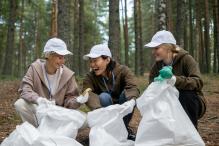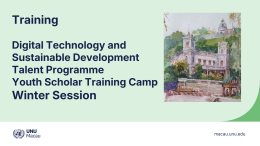Access to clean water in many African countries is still far from being universal as envisioned under SDG 6 (clean water and sanitation for all). In the Southern Africa Region, herein abbreviated as SAR, about 40% of the population is estimated to lack access to clean drinking water. Besides, sufficient water is also required to support vital, yet highly water-consuming sectors, for example, agriculture – which already accounts for over half of the total water used in the region. The Southern Africa region is endowed with abundant water resources including 15 transboundary river basins and vast groundwater resources. However, the region still lacks sufficient/efficient infrastructure for sustainable distribution, utilization and management of the available water resources for the benefit of all. Additionally, climate change is compounding the region’s water access/supply challenges by altering the way water resources are distributed both spatially and temporally. These existing and emerging challenges call for new and innovative solutions that support efficient and sustainable access to, utilization and management of water resources towards water security. FIUWA addresses the questions of existing challenges and needs in the water sector in the region (water supply, water use efficiency, etc.), specific/potential interventions required to address the challenges (technology, policy interventions, etc.), and what role digital/frontiers technologies (IoT, AI, big/smart data, crowd sensing, etc.) can play and how can they be adopted/adapted, jointly by African and German actors to support frugal innovation, and job creation to leapfrog water sector in SAR while also inspiring youth entrepreneurship. The project borrows from and builds on the recent success of frugal innovations and youth entrepreneurship in the mobile sector in Africa. In the initial phase, FIUWA aims to: 1. assess the potential of digital technologies to improve and leapfrog water infrastructures, 2. develop a framework that brings together actors and stakeholders of water infrastructure, technology, innovation and entrepreneurship in the Southern Africa Region, and 3. develop conceptual structures to identify and ideate solutions, organize and support digital frugal innovators and innovations in water with a focus on youths.
The results of the proposed project will be utilized to kickstart an innovation community of practice that not only improves water infrastructure but also has the capacity to spur entrepreneurship and create jobs for youths. The project sets a focus on knowledge co-creation and innovation by preparing and establishing joint African-German innovation teams in order to develop technically feasible, economically viable, socially acceptable and locally adaptable solutions in response to core challenges in the field of water security. The project envisions the establishment of an innovation hub in Namibia focusing on sustainable water resources management and two satellite centers, one in South Africa focusing on climate information services for water solutions and one in Angola focusing on water solutions in the context of agriculture and food security in line with the Southern African Science Service Centre for Climate Change and Adaptive Land Management (SASSCAL) priorities and jointly with the SASSCAL graduate program in the respective countries.
In the FIUWA project, UNU coordinates a consortium of partners including Fraunhofer IMW and German Water Partnership (GWP) from Germany as well as African Water Association (AfWA), AUDA-NEPAD Water Centers of Excellence in Southern Africa and AfriLabs from Africa. PAUWES and WASCAL are associate partners. Apart from project coordination, UNU will lead the development of an innovation and entrepreneurship ecosystem as well as structuring of a capacity building program.
The project is funded by the German Federal Ministry of Education and Research (BMBF) following a call for proposals for funding of African-German collaborative projects in the field of water security in Africa (WASA); initial phase – southern Africa.
- Project Manager
- Dr. Erick Rostand Gankam Tambo




